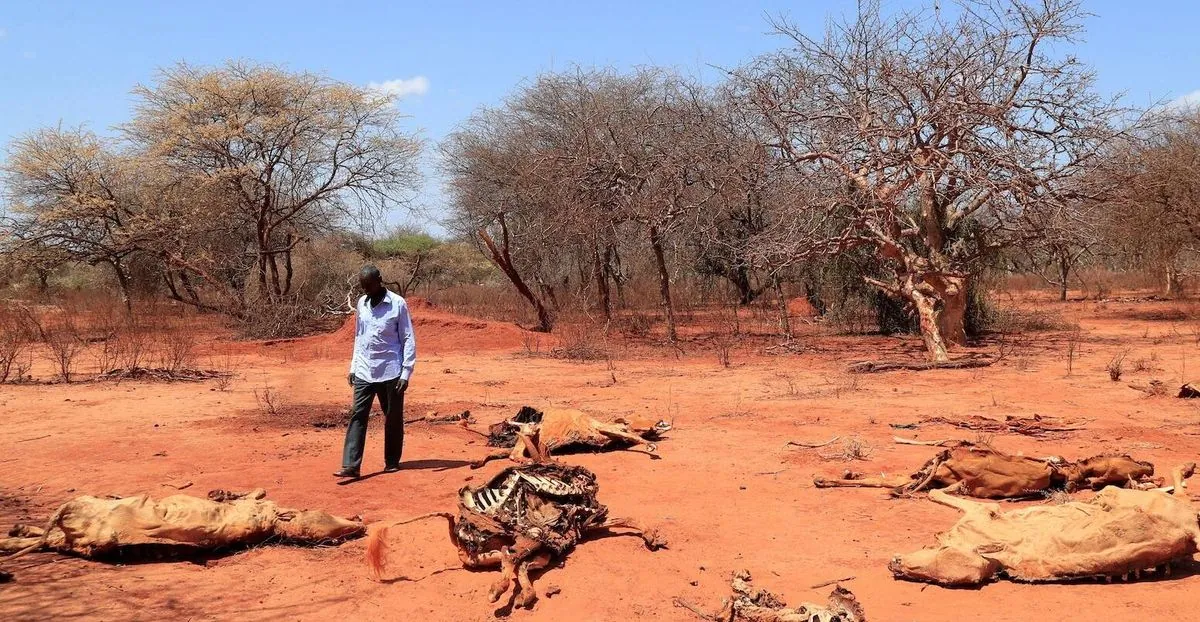Africa Loses 5% of Economic Output to Climate Crisis, UN Chief Warns
UN climate chief highlights Africa's economic losses due to global warming, calling for increased climate finance. The continent receives only 1% of global climate funds despite severe impacts.

The United Nations climate chief has raised alarm over the significant economic toll of global warming on African nations. According to Simon Stiell, Executive Secretary of the UN Framework Convention on Climate Change (UNFCCC), climate change is costing African countries up to 5% of their economic output. This stark revelation comes as the continent grapples with disproportionate climate impacts despite contributing minimally to global emissions.
Stiell addressed African environment ministers at a pre-COP29 meeting in Abidjan, Ivory Coast, emphasizing the urgent need for increased climate finance. Despite Africa's vulnerability to climate change, it receives a mere 1% of annual global climate funding. This disparity is particularly concerning given that the UNFCCC, established in 1992, aims to address global climate challenges equitably.
The economic implications of climate change for Africa are severe. Stiell described the crisis as an "economic sinkhole," hindering growth across the continent. This situation is exacerbated by chronic underinvestment in climate solutions, despite Africa's vast potential for driving forward such initiatives.

The scale of required investment is staggering. African officials estimate a need for $1.3 trillion in climate financing, far exceeding the current allocation. To put this in perspective, of the $400 billion spent globally on clean energy last year, only $2.6 billion was directed towards African nations. This underinvestment is particularly alarming given Africa's significant renewable energy potential, which could exceed 310 GW by 2030.
Climate change impacts in Africa are manifold, ranging from prolonged droughts to catastrophic flooding. These events have severely disrupted food production, leading to rising commodity prices and increased hunger. The situation is compounded by the fact that Africa contains about 30% of the Earth's remaining mineral resources, yet struggles to leverage these assets for climate resilience.
"We must use innovative financing solutions for adaptation without exacerbating debt burdens."
Morsy's statement underscores the need for creative approaches to climate finance. Suggestions include debt refinancing, swaps, and carbon markets. These innovative solutions are crucial, especially considering that 600 million Africans lack access to electricity, highlighting the urgent need for sustainable development.
As the continent prepares for COP29 in Baku, there are growing calls for Africa to secure more climate financing. This aligns with the Paris Agreement's goal of limiting global warming to well below 2°C and the African Union's Agenda 2063, which includes climate resilience as a key objective.
Initiatives like the Great Green Wall, aimed at combating desertification across the Sahel region, exemplify the type of large-scale projects that require substantial funding. With Africa's population projected to reach 2.5 billion by 2050, the need for climate-resilient infrastructure and sustainable resource management has never been more critical.
The climate crisis in Africa is not just an environmental issue but a complex challenge intertwined with economic development, population growth, and resource management. As the continent that hosts 17% of the world's forests, including the vital Congo Basin rainforest, Africa's role in global climate mitigation cannot be overstated. The international community's response to Africa's climate finance needs will be crucial in shaping the continent's future and, by extension, the global climate landscape.


































